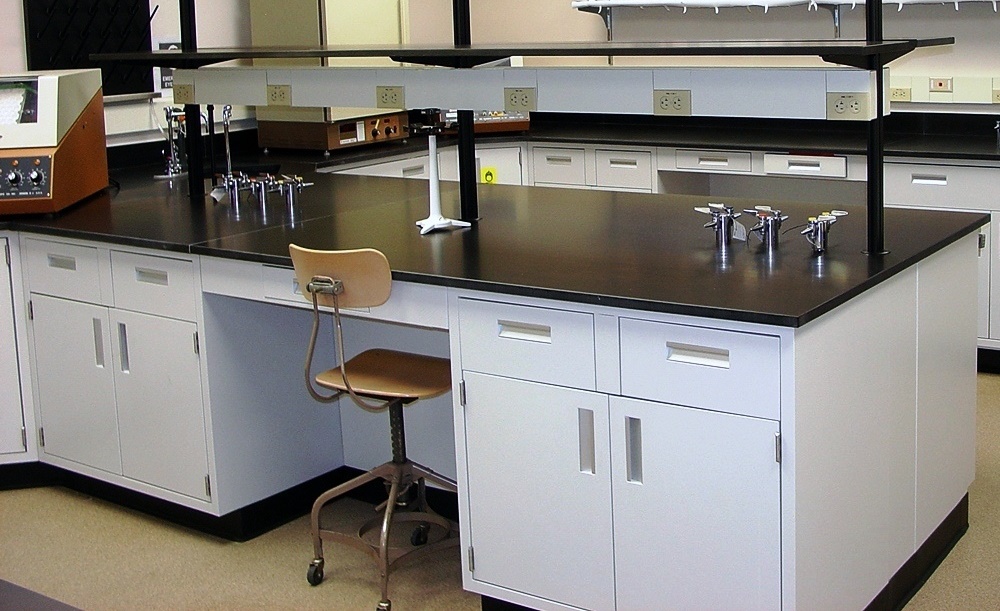
When planning or upgrading a laboratory, one among An important items to take into consideration may be the area materials. Lab counters and sinks facial area constant exposure to heat, chemicals, and daily don, so selecting the appropriate product is critical. At Shengstone, you'll find an entire choice of significant-high-quality Epoxy Resin Lab Countertops,
Why the ideal Laboratory Area Issues
A laboratory countertop isn’t simply a workspace—it’s a protecting barrier. It should resist hurt from potent acids, solvents, and warmth, though remaining simple to wash and keep. Weak-top quality surfaces can chip, swell, or get rid of their resistance over time, leading to contamination pitfalls and expensive replacements. That’s why purchasing the ideal material from the beginning saves both equally time and cash In the end.
Epoxy Resin Lab Countertops: Toughness and Toughness Blended
They also have a rather matte texture, which can help reduce glare from lab lights while maintaining a thoroughly clean, Specialist glimpse. Irrespective of whether you’re equipping a school lab, investigation facility, or industrial workspace, epoxy resin countertops can handle decades of demanding use.
Epoxy Resin Sinks: Designed to Final
For spots that have to have continual publicity to liquids or corrosive chemical compounds,
Another significant advantage of epoxy resin sinks is that they’re easy to wash. Their non-porous surface prevents microbes development and contamination, which is very important for preserving sterile operate circumstances in labs addressing Organic or chemical screening.
Phenolic Resin Countertops: Lightweight Nonetheless Hard
Phenolic surfaces also are an environmentally friendly option given that they’re produced applying layers of kraft paper infused with resin below high strain and warmth. This results in a dense, reliable panel that performs perfectly even in challenging lab environments.
Ceramic Worktops: Warmth and Scratch Resistant
Ceramic Worktops offer remarkable resistance to high temperatures and scratches. They’re ideal for laboratories in which heat publicity is popular—like in chemistry, physics, or industrial testing labs. Ceramic components can face up to open flame and very hot machines without losing their structural integrity. They’re also extremely straightforward to wipe clean up and immune to staining, building them both of those practical and extensive-lasting.
Several modern laboratories use a mixture of materials, which include combining ceramic tops with epoxy resin sinks, to make a personalized workspace that satisfies certain requirements.
Chemical Resistant Laminate: Inexpensive and Functional
Chemical Resistant Laminate countertops are a terrific selection for laboratories that want good protection with no higher cost of resin products. These surfaces are coated with Particular levels that secure against spills, acids, and gentle solvents. When not as warmth-resistant as epoxy or ceramic, chemical-resistant laminates perform effectively in academic or light-duty lab settings in which significant chemical publicity is restricted.
Picking out the Ideal Area for your personal Lab
Selecting the proper product depends upon how your laboratory operates. In the event you’re handling potent acids, bases, or solvents consistently, epoxy resin or phenolic resin can be ideal. For high-temperature environments, ceramic could be the safer alternative. For normal labs or academic establishments, chemical-resistant laminate offers a finances-friendly stability of performance and toughness.
At Shengstone, you’ll find a complete assortment of those products crafted with care and precision. Their items are examined to satisfy rigorous field requirements, making certain extended-phrase reliability and fantastic value.
Remaining Views
Laboratory countertops tend to be more than just flat surfaces—they’re the foundation of safe and economical scientific do the job. Regardless of whether you’re building a new facility or upgrading an current 1, choosing the ideal mixture of materials will make all the real difference. From